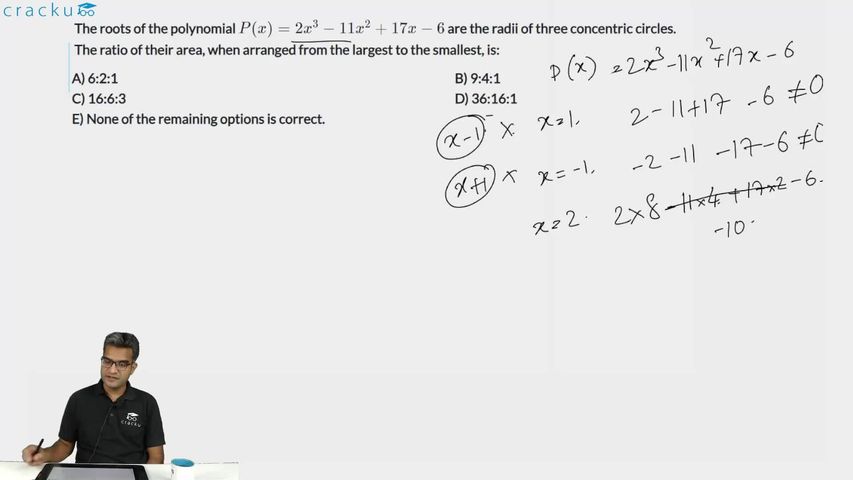The roots of the polynomial $$P(x) = 2x^3 - 11x^2 + 17x - 6$$ are the radii of three concentric circles.
The ratio of their area, when arranged from the largest to the smallest, is:
Solution
First, we have to find the roots of the cubical equation.
One root has to be figured out using the trial and error method.
Let's try 1.
$$P(x) = 2x^3 - 11x^2 + 17x - 6$$
$$P(1) = 2*1^3 - 11*1^2 + 17 - 6=1$$
So, 1 is not a root.
Let's try 2,
$$P(2) = 2*2^3 - 11*2^2 + 17*2 - 6=0$$
Hence, two is one of the roots of this equation.
Now, using the synthetic division method cubical equation can be written as (x-2)($$2x^2-7x+3$$)=0
The roots of $$2x^2-7x+3$$ are 1/2, 3.
The area of circles with radii 3, 2, 1/2 are $$9\pi $$, $$4\pi$$, $$\frac{\pi}{4}$$.
Their ratio od areas is 9:4:$$\frac{1}{4}$$
$$\Rightarrow$$ 36:16:1 is the ratio.
Video Solution

Click on the Email ☝️ to Watch the Video Solution
Create a FREE account and get:
- All Quant Formulas and shortcuts PDF
- 15 XAT previous papers with solutions PDF
- XAT Trial Classes for FREE
